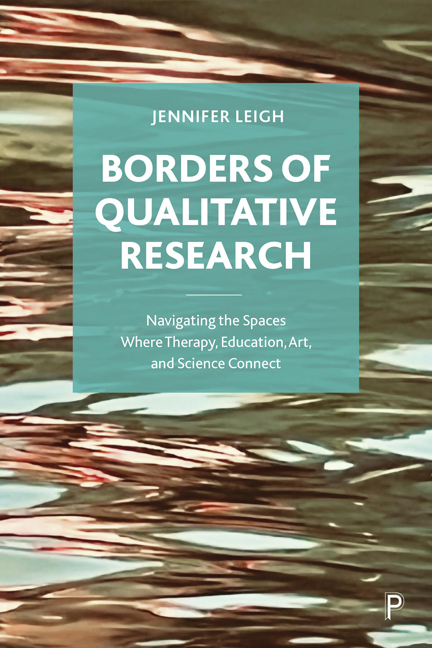 Borders of Qualitative Research
Borders of Qualitative Research Case Study 2 - Working with artists and researchers
Published online by Cambridge University Press: 28 March 2024
Summary
This case study draws from work project-managing the research component and later following up researcher experiences of the multidisciplinary research study Imagining Autism. This brought drama practitioners and researchers together with an evaluation team from psychology. It exemplifies the borders of qualitative research where it meets with art, education, and therapy. While I was positioned within the evaluation team, I was very aware of similarities between the improvisational drama and my doctoral work with children. This case study also highlights the ways in which researchers reflect and position themselves in their research.
Context
Imagining Autism was a collaboration between a team of drama academics and practitioners and two teams of psychologists. The drama researchers had a long history of using improvised drama and puppetry with autistic children and children with other special educational needs. They had seen how their approach had a beneficial effect, increasing capacity for and willingness to engage in social interactions and imaginative play. They had heard from families and teachers about how their work ‘ameliorated’ some of the challenges the children faced day-to-day in allistic society. The two leads were both parents of autistic children and had personal reasons for their interest. However, they were unable to ‘prove’ in the scientific objective sense that what they did had an impact, or establish why. As drama academics they were used to using Practice-as-Research (Barrett and Bolt 2010) which is, rightly or wrongly, often not as highly regarded as other research approaches or methods within academia (Mårtensson et al 2016). They decided to collaborate with psychology researchers to evaluate the impact of a programme of improvised drama to ‘show’ that what they did was of benefit and had value. The study was designed to be systematic and rigorous, involving standardised tests of IQ, numeracy and literacy, momentary time sampled observations of the children in class and at play, and regular ADOS (autistic diagnostic observation schedule) tests. The study involved 27 children aged 7–12 years from three schools in the UK over 18 months to allow for improvements in testing due to developmental changes.
- Type
- Chapter
- Information
- Borders of Qualitative ResearchNavigating the Spaces Where Therapy, Education, Art, and Science Connect, pp. 157 - 172Publisher: Bristol University PressPrint publication year: 2023


